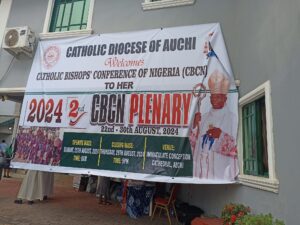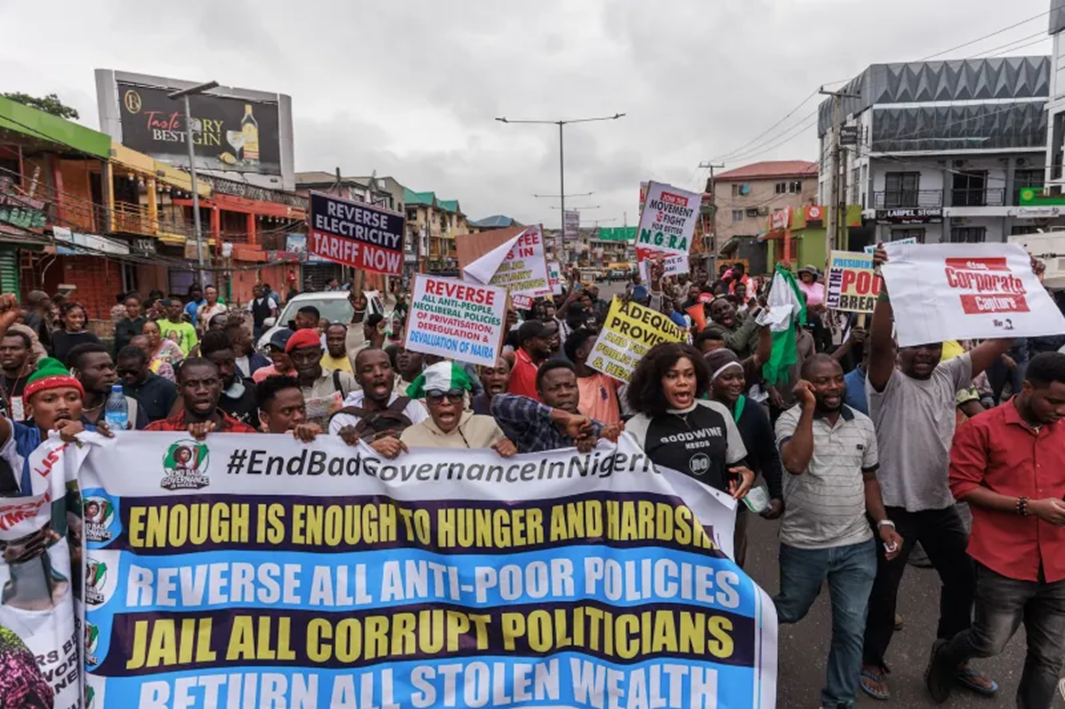By Paschal Norbert
AUCHI, AUGUST 30, 2024 (CISA) – In a stirring communiqué issued at the conclusion of their Second Plenary Meeting held from August 22 to 30, 2024, the Catholic Bishops’ Conference of Nigeria (CBCN) has issued a clarion call for urgent government action to address the nation’s economic and social crises.
Meeting at the Nezer Towers and Suites in the Catholic Diocese of Auchi, the bishops provided a detailed assessment of Nigeria’s current challenges and issued recommendations for both immediate and long-term reforms.
State of the Nation
The bishops’ communiqué opens with a critical review of Nigeria’s current state, highlighting widespread dissatisfaction with governance: “In our nation, there are complaints at all levels, even from government officials who, however, blame the previous government for the current hardship.”
The bishops noted that while the current administration claims to be taking difficult but necessary steps to address the country’s issues, many citizens remain sceptical.
“The government officials keep calling for patience and sacrifice, but their call does not fall well on the rest of the citizens who continue to suffer hunger and dehumanizing poverty,” they added. The communiqué further expressed frustration over the perceived disconnect between the affluent lifestyles of those in power and the grim realities faced by ordinary Nigerians.
The bishops expressed concern about a pervasive sense of corruption and inefficiency, stating that “there is an unfortunate general feeling in the nation that we are stuck in a tight web of corruption from which we cannot extricate ourselves.”
The prelates called for a concerted effort to address systemic issues that perpetuate poverty and governance failures, urging the government to implement genuine reforms.
#EndBadGovernance Protest
The bishops observed recent protests across Nigeria have underscored the mounting frustration among citizens, leading to calls for better governance. They affirmed the constitutional right of Nigerians to express their grievances through peaceful means but condemned the violence that marred some demonstrations.
“Our people recently embarked on a protest as Nigeria’s economy continues to deteriorate and reduce millions of citizens to a life of abject poverty and ineffable hardship,” they explained, noting that despite the initial peaceful nature of the protests, they were marred by violence, looting, and destruction.
The bishops condemned the heavy-handed responses by security forces, stating, “Unfortunately, some security operatives, who should normally protect citizens during protests, resorted to threats, intimidation and blackmail.”
They called for an end to such abuses and urged the government to address the root causes of protests, advocating for the release of those detained for their involvement in lawful demonstrations.
Debilitating Debt Burden
The August 29 communiqué also addressed Nigeria’s crippling debt, which the bishops argue is a significant burden on current and future generations.
“Our nation’s huge debt burden is a great affront to our present and future generations,” the bishops stated. They noted that the government’s economic reforms, including the withdrawal of fuel subsidies and the floating of the Naira, have exacerbated inflation and deepened poverty.
“We are aware that these reforms have triggered a galloping inflation that has reduced most Nigerians to a life of cruel suffering and wretchedness,” they said.
The bishops called for a reconsideration of the current economic policies, emphasizing that “the socio-economic difficulties of our nation are clearly beyond what economic reforms alone can effectively resolve.”
They urged President Bola Ahmed Tinubu’s administration to explore alternative strategies that focus on alleviating hardship and fostering inclusive development.
Multiple Taxation
Another area of concern highlighted by the bishops is the issue of multiple taxation, which they argue places a severe burden on businesses and individuals.
“Taxes and levies are sources for government to generate revenue to meet its statutory duties,” they acknowledged, but they criticized the excessive and overlapping tax demands from various levels of government.
“Multiple taxation is a severe burden on business enterprises and individuals,” they stated, pointing out that the harsh economic environment has led to business closures and financial strain.
The bishops appealed for a harmonization of tax policies to reduce the burden on businesses and stimulate economic growth.
“We appeal to governments at all levels to take urgent measures to harmonise taxes and address multiple taxation,” they urged. This, they believe, will help businesses survive and thrive amidst the challenging economic landscape.
Hardship and Food Insecurity
The bishops also addressed the dire state of food insecurity and general hardship facing Nigerians, saying “Nigerians are currently groaning under the yoke of hardship which is fuelled by high electricity tariffs, high cost of petroleum products, transportation and Medicare.”
They highlighted the severe impact of persistent insecurity, which has disrupted agricultural activities and exacerbated food shortages. Despite government efforts such as cash transfer schemes and food imports, the bishops lamented that food prices continue to rise.
“We demand that governments put in place policies, programmes and initiatives that would address the multi-faceted factors that adversely affect food security,” they urged. They called for targeted support for farmers and small businesses to improve food production and processing, emphasizing the need for comprehensive and actionable plans to achieve food self-sufficiency.
